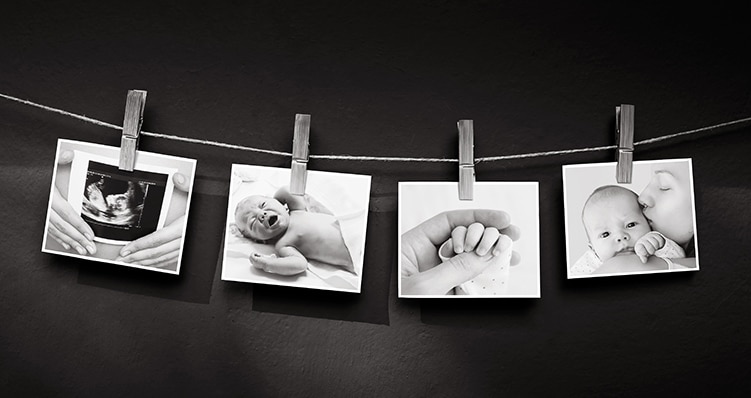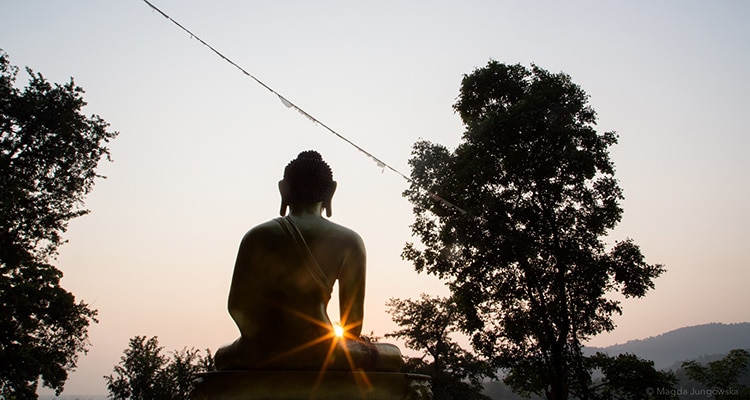Meditation for Childbirth and Pregnancy
Category: Health and Meditation | Meditation for Students and Families

A woman’s experience of pregnancy and childbirth very much depends on what’s going on in her life. For many women – those who have “the glow” – pregnancy is an exhilarating time of hope and expectations, while others experience apprehension about the future, fear of pain and physical challenges. Some are dismayed at losing their figures, while others delight in their “baby bumps.”
As a baby develops from a few tiny cells into a newborn, women experience intense hormonal changes which may trigger heartburn, dizziness, morning sickness, and other physical challenges. A yearning for pickles and ice cream (or pistachio ice cream, hot fudge and sardines à la I Love Lucy) is the least of it!
There are psychological changes as well, ranging from euphoria to depression, both pre- and post-partum. Happily, pregnancy meditation can help expecting mothers cope with the many changes that occur.
Pregnancy meditation benefits
Parents Magazine lists meditation as one of the “eight steps to a less stressful labor.” And to make mindfulness meditation available for pregnant women and, potentially, their partners, there is a program called Mindfulness-Based Childbirth and Parenting, or MBCP. The MBCP program was created by one of the most prominent voices in the field, San Francisco-based Nancy Bardacke, a nurse-midwife and yoga and mindfulness teacher.
A recent New York Times article, The Benefits of a Mindful Pregnancy, points to the positive outcomes of a weekend course led by Bardacke called “The Mind in Labor.” Ms. Bardacke teaches participants how to apply mindfulness to fear and discomfort during childbirth. The article quotes Bardacke as saying “Mindfulness practice provides an opportunity for the discovery of previously unrecognized inner resources of strength and resilience.” Ms. Bardacke has also observed that “By the time the workshop is over, women’s confidence levels increase and their fears begin to dissipate. They realize that even if giving birth is hard, it’s something that they can manage, moment by moment.”
How pregnancy meditation works
The premise of mindfulness is that it is possible for us to be mindfully aware of our experiences without grasping or rejecting them. We might be aware of thoughts, moods, physical sensations or emotions; the object of our attention could be just about anything as long as we’re able to observe and distance ourselves from it. To do this we generally focus on a meditation object such as the breath, sound or movement. It could also be the voice leading us in guided meditation.
When we are able to remain focused enough to notice when the mind has drifted, we gently and firmly bring our attention back to the object we have chosen. We train in accepting whatever we experience as just that – a fleeting experience – without judgment or analysis. Women – and their partners – who practice meditation often feel empowered by the realization that their thoughts, feelings, and physical sensations including discomfort are manageable thanks to the awareness and benevolence fostered by their practice. For expecting mothers and their partners, these feelings often include anxiety and fear of pain. Mindfulness allows women to relate differently to pain and helps reduce the impact of stressful feelings that might be passed along to the fetus.
Having the perfect baby buggy, crib and baby carrier may be quite satisfying, but the gift of lovingkindness, calmness and openness is invaluable. Pregnancy meditation makes it possible for every parent to prepare not just materially, but also mentally and spiritually for the arrival of a new human being in their life. And once the baby has arrived, it gives parents the ability to be fully present with the child and the experience of parenting.
For further reading, check out our blog on How to Meditate During Pregnancy.






